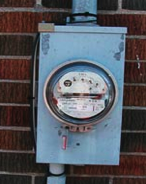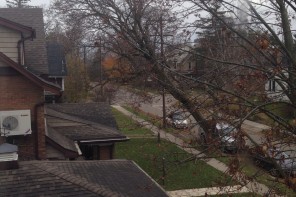 Victor Hussein Kitchener Waterloo Real Estate Lawyer talks about tips and traps when buying a home
Victor Hussein Kitchener Waterloo Real Estate Lawyer talks about tips and traps when buying a home
QUESTION: I am presently looking for my first home and have been given a lot of advice as to what to look for and so on by my agent. I was wondering if you could provide some insights into traps I should be aware of and steer clear from?
ANSWER: Although a complete list of traps to avoid cannot be provided, below are some of the more common pitfalls to be aware of:
Purchasing Re-Sale Homes: In purchasing a re-sale home, take consideration of the following:
1) Home Inspection: Since you are not purchasing a brand new home, you can expect normal wear and tear to exist, but you should protect yourself against any major deficiencies such as a leaky roof, leaky basement, a defective furnace, and so on. Spending $300 – $600 now on an inspection could potentially save you a lot of aggravation in the future.
Whether or not you are going to have an inspection conducted, I would suggest having a condition inserted into your Agreement of Purchase and Sale (“Agreement”), for a satisfactory inspection. By having this condition in your Agreement, the option will be available in the event you decide to take this precautionary measure.
2) Financing: Although you may have already been pre-approved by your lender for a certain level of financing, be aware the pre-approval is for you as a purchaser or individual only. A pre-approval is not a commitment by the lender to finance the purchase of any property. The property you decide upon purchasing must also be approved by your lender prior to an actual commitment to finance being offered.
For example, if you have been pre-approved for financing of $100,000.00, the lender is simply stating that you, as an individual, are entitled to a loan in this amount. Once you enter into an Agreement of Purchase and Sale, the lender will want to ensure the home has a market or appraised value that is realistic to the funding being sought as a mortgage.
Therefore, as a purchaser, always insert a condition in the Agreement for acquiring financing even if you have been pre-approved. Once the Agreement is signed, you can then approach your lender to acquire a commitment. Once a firm commitment is acquired, then the condition regarding financing may be waived.
3) Survey: One of the more common standard forms of Agreements of Purchase and Sale used in the tri-city area is provided by the Ontario Real Estate Association. In that Agreement, paragraph number 11 places an obligation upon the Vendor to supply any title deed, abstract or survey which are already in the Vendor’s possession or control. Take special note of the fact that this does not place an obligation on the Vendor to provide you with a new survey. It simply requires the Vendor to supply you with an existing survey which the Vendor may have in his/her possession.
Insist upon viewing the survey and having it attached to the Agreement as a schedule. Have your real estate agent or lawyer review the survey and discuss the pros and cons of using the particular survey. Generally, lenders insist upon the survey not being too old. In any event, if the survey is unacceptable, the purchaser may be faced with either acquiring a new survey or title insurance.
4) Final Inspection: Purchasers have the right to inspect the subject property one last time prior to closing. It is surprising the number of purchasers who do not take this opportunity.
I recommend inspecting your home 2 – 3 days before the scheduled closing date. By inspecting the property 2 – 3 prior to closing, you may be able to get a better look at the property if the Vendors have already moved out, and, you and your lawyer will have some time before the closing date to deal with any substantial damage discovered, if any.
Purchasing New Homes: In purchasing a newly constructed home, take consideration of the following:
1) Agreement of Purchase and Sale: When purchasing a new home, you will undoubtedly be given a lengthy document representing your Agreement of Purchase and Sale. All builders have their own standard forms of Agreements. Some of these Agreements can be more than 25 pages — legal size!
The only advise that can be given here is: have your lawyer or real estate agent review the Agreement with you before signing. With a contract of this length, and the sums of money involved, a little precaution can go a long way.
2) Financing: Paragraph 2 (above) applies when purchasing a newly constructed home as well.
3) Final Inspection: A few days before the scheduled closing date, you will be attending with the builder to inspect the home and complete the Certificate of Completion and Possession provided by the Ontario New Home Warranty Program (“Certificate”).
This inspection is very important. Take time to inspect every little detail. Make sure to note any minor and major deficiencies on the Certificate as this will be your best proof that the deficiency existed at the time of closing and not through any fault of your own.
Finally, whether you are buying a new home or a re-sale home, meet with your lawyer at the outset. This is especially true when purchasing a home without assistance from a licensed real estate agent. Both your agent and lawyer are there to protect your best interests and their services and expertise should be employed as early as possible. Best of Luck!
More from Victor Hussein as he talks about:
Victor Hussein is a Kitchener Waterloo lawyer, specializing in real estate.






